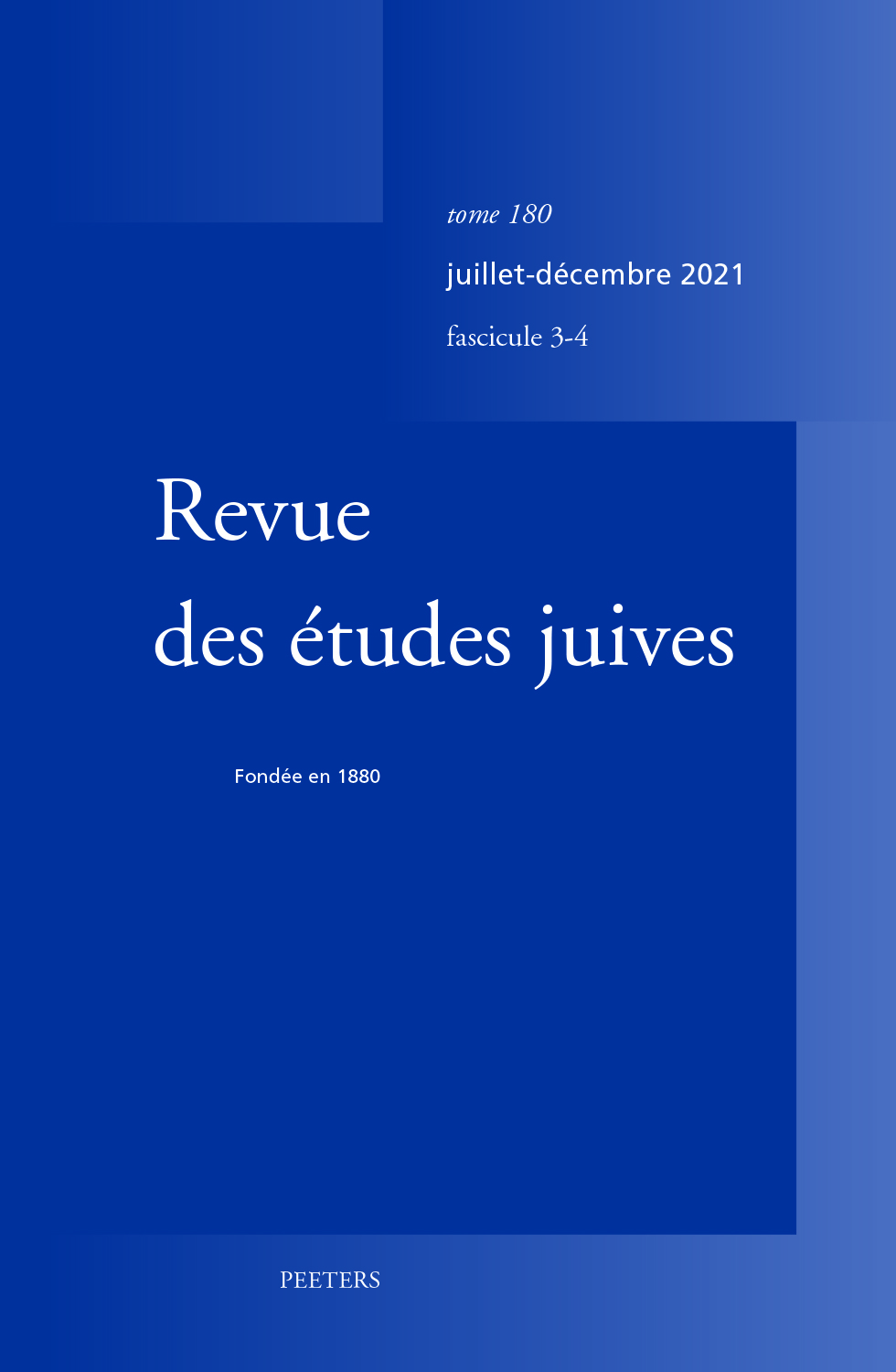 previous article in this issue previous article in this issue | next article in this issue  |

Preview first page |
Document Details : Title: Saints et mondains Subtitle: Le traité Kallah et la propagation du mode de vie rabbinique en Babylonie Author(s): NAIWELD, Ron Journal: Revue des Études Juives Volume: 172 Issue: 1-2 Date: janvier-juin 2013 Pages: 23-47 DOI: 10.2143/REJ.172.1.2979739 Abstract : Dans cet article, nous proposons un élément de réponse à la question suivante: comment le judaïsme rabbinique est-il parvenu à définir la forme normative du judaïsme à partir de la fin de l’Antiquité et au début du Moyen Âge? En nous fondant sur l’analyse philologique du traité Kallah faite par David Brodsky, nous proposons de lire le traité comme un texte rédigé à l’intérieur des cercles rabbiniques babyloniens ayant comme objectif de propager le mode de vie rabbinique au-delà des murs de la yeshibhah. L’article comporte également une traduction française du traité, ainsi que son analyse. En situant le traité dans le contexte religieux de l’Antiquité tardive, nous y montrons comment les enseignements du traité fournissaient à l’individu juif non-rabbinique un moyen de comprendre sa vie religieuse (juive) dans des termes spirituels. In this article we propose a possible element of the answer to the following question: how did rabbinic Judaism succeeded in defining the normative form of Judaism from the end of Antiquity and the beginning of the Middle Ages? Based on David Brodsky’s philological analysis of tractate Kallah, we propose to read this tractate as a text redacted inside rabbinic circles in Babylonia, in order to propagate the rabbinic way of life outside the walls of the yeshibhah. The article offers a first translation of the tractate into French as well as the analysis of its content in light of the principal question. By situating the tractate in the religious context of Late Antiquity, we show how its teaching provides the non-rabbinic Jews addressees with a mean to understand their religious (thus Jewish) lives in spiritual terms. |
|


